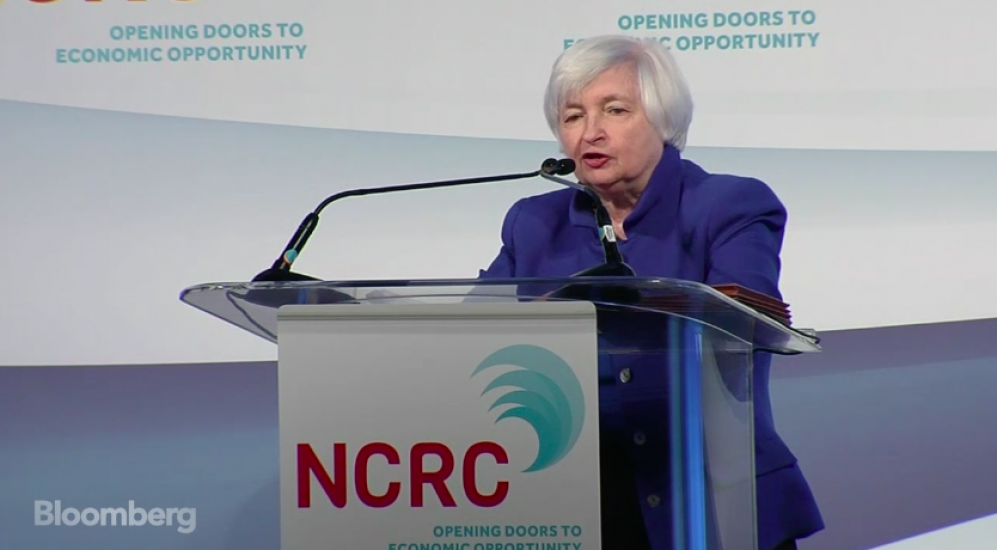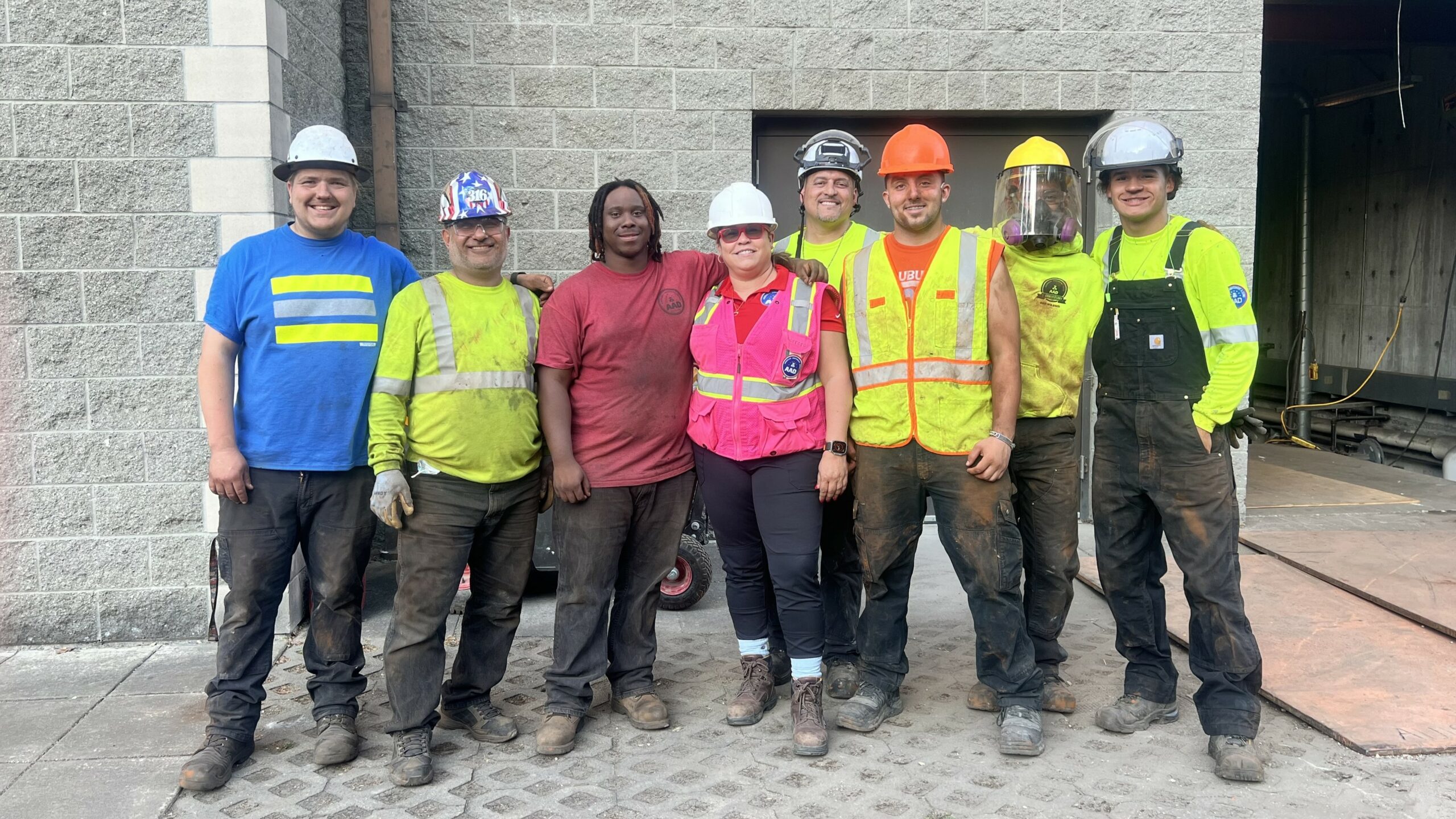At the annual conference for the National Community Reinvestment Coalition, Federal Reserve Chair Janet Yellen stressed the importance of workforce development initiatives to improve the lives of low- and moderate-income Americans and strengthen communities suffering from persistently higher unemployment rates.
“Educational programs and training that lead to better paying and more steady work are crucial for people without college degrees, particularly lower-income workers,” she said.
At the event, which marked the 40th anniversary of the Community Reinvestment Act (CRA), Yellen re-emphasized the Federal Reserve’s role in holding banks’ accountable in meeting the credit needs of the communities they serve, not just through home mortgages, but through investments in educational opportunities and the development of small businesses.
“As many of you know, we recently revised our interagency guidance to clarify how various community development activities are considered in assessing CRA performance, among them workforce development …”
As a way of incentivizing banks to invest in workforce development programs, Yellen said banks will now receive CRA recognition for lending to, investing in, and providing services to these kinds of initiatives.
To help these craft these programs, “in 2015, the Federal Reserve Banks of Philadelphia, Cleveland, and Atlanta identified occupations with above-average wages for workers without a bachelor’s degree in the country’s 100 largest metropolitan areas. The Reserve Banks made this information available to workforce development providers online and in workshops.”
After addressing some of the barriers lower-income students face, Yellen turned to the positive, highlighting some examples of successful initiatives that illustrate key features of effective workforce development.
1. Establish a solid connection to employment early in young adults’ work lives.
Pocket Change, a program which the Boston Fed lent technical support, aims to reduce unemployment among low-income 18- to 24-year-olds in Somerville, Massachusetts, through internships, training in job skills, and reinforcement of important soft skills such as punctuality and effective communication.
In its first two years, the initiative trained 53 low-income young people and placed 20 of them in jobs. The results of this modest program indicate the promise of efforts that focus on first-time work experiences, and Somerville is now seeking to expand the initiative.
2. The considerable potential of career and technical education (CTE) programs, which have seen a revival in recent years.
Career and Technical Education programs have been refined and have made a comeback as an effective way to help non-college-bound workers gain valuable skills and obtain a foothold in a labor market that increasingly requires technical proficiency. These programs teach the skills needed to pursue careers in fields such as construction, manufacturing, healthcare, information technology, hospitality, and financial services.
MORE: Mike Rowe speaks in Washington on CTE in America
3. CTE programs and other workforce development initiatives are able to match education and training to good-paying jobs when they actively engage employers in the training process.
WorkAdvance, a regional sector-specific program, delivers an array of aligned services to meet local business needs and provide jobs for unemployed and low-income adults in multiple cities. An evaluation of the program last year in Tulsa, New York City, and northeast Ohio found it was especially effective because it offered training for in-demand skills and industry-recognized certifications, and it focused on jobs that have clear paths for advancement.
4. Apprenticeships, which are more common in other countries, could play a larger role for low- and moderate-income individuals in our country as part of broader career and technical education efforts.
Apprenticeship Carolina, helps employers develop apprenticeships at no cost to them. Businesses receive a $1,000 annual tax credit per apprenticeship, and the program assists them with information and technical needs, paperwork, and the integration of classroom learning at local technical colleges. The program has led to sizable job gains at a modest cost to the state.
5. Promoting entrepreneurship could play a greater role in workforce development.
Programs that equip people with the management skills and knowledge they need to start and operate a successful small business are especially critical in low-income and rural communities where other resources to support small business development may be scarce.
As part of their community affairs work, several Federal Reserve Banks have small business development initiatives. The Federal Reserve Bank of New York organized a small business protection and education series last year in partnership with the Brooklyn Chamber of Commerce and a local development corporation. Participants learned about capital resources available to small businesses, online credit alternatives for small businesses, and the risks of handling large volumes of cash.
In another example, the Federal Reserve Bank of Kansas City developed a guide to help rural and smaller metropolitan communities promote conditions favorable to growing local businesses rather than relying only on efforts to attract large companies.
MORE: Academy Mentors Young, Black Men on Road to Entrepreneurship
Of course, in addition to training, small business owners need financing. Nontraditional lenders, including more than 1,000 Community Development Financial Institutions around the country, help fill the gap.
It’s programs like these, Yellen said, that are helping address these challenges in more targeted ways than the Federal Reserve is equipped to do through monetary policy.
“I want you to know that we applaud your work, and we thank you for doing all that you do to serve the needs of lower-income communities across the country. Whether you work to provide affordable housing, homeownership counseling, small business credit and technical support, or workforce development, I hope you know that you have a partner in the Federal Reserve,” Yellen concluded.











